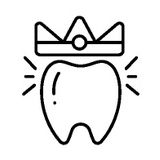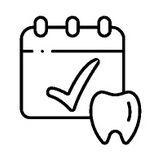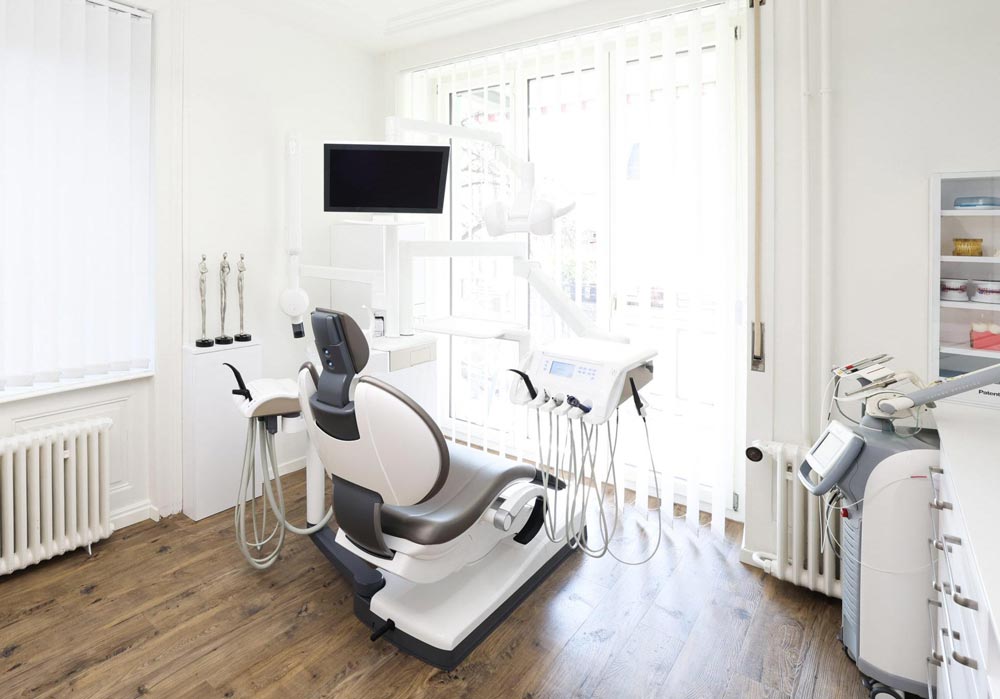Gentle treatment for dental anxiety
GENTLE, PAIN-FREE & UNDERSTANDING TREATMENTS
OUR PRICES:
Dependent on the individual treatment measures
DENTAL PHOBIA / DENTAL FEAR? DON'T WORRY, YOU ARE NOT ALONE!
For us, the focus is on the person! We will discuss your individual situation in a personal, confidential preliminary discussion and discuss every planned examination and treatment with you in detail so that you can sit back and relax. Are you one of those people who are afraid of drilling? No problem. We simply use the laser and save you from unpleasant drilling noises. We also use intraligamentary anesthesia (ILA), a gentle, modern method of anesthetizing the lower jaw. We have received a lot of positive feedback from our patients about the gentle anesthetic technique used by Ms. Med. Dent. Marinescu. Many do not even notice that an injection has been given!
YOUR BENEFITS

Gentle treatment methods

Painless thanks to anesthesia

Individual preliminary discussion

Understanding dentist

Friendly atmosphere

Flexible scheduling

UNDERSTANDING DENTIST FEAR
According to surveys, around 20% of the population are afraid of visiting the dentist. In these cases, it is referred to as a phobia (dental phobia). Often traumatic experiences in childhood are responsible, where dentists did not pay enough attention to the patient's special needs. If this experience happened very early, the patient does not even remember it. But later, unprofessional dental treatments or traumatic root canal treatments can also be responsible for the fear of the drill.
OVERCOMING DENTAL FEAR
To overcome fear of the dentist, you need positive stimuli, i.e. positive experiences at the dentist - for example with pain-free treatments. In addition to the tools of modern dentistry that make this possible, we are particularly concerned with treating anxious patients with respect and building a lasting relationship of trust. It is also important to us to create a pleasant atmosphere for you in the practice. Together we can do it and overcome the fear of going to the dentist step by step.


Frequently asked questions
How does fear of the dentist manifest itself?
Dental fear is an intense emotional reaction triggered by the idea of going to the dentist or by actual experiences at the dentist. Symptoms can be very varied, from general discomfort and heart palpitations to profuse sweating, tremors, and nausea. In some cases, panic attacks can also occur.
How common is fear of the dentist?
Fear of the dentist is a widespread phenomenon that affects people worldwide. Research estimates that 10-20% of people experience some form of dental fear, and in 5-10% the fear is so severe that it is classified as dental phobia.
Is there therapeutic help for people with dental fear?
Yes, there are numerous therapeutic approaches to help people with dental fear. Specialized psychologists can use behavioral therapy methods and some are trained to deal with anxious patients. Medications such as sedatives may also be used.
What about children and fear of the dentist?
Children are particularly susceptible to fear of the dentist. This is not only due to possible bad experiences, but also because children can take on the fears of their parents or caregivers. That's why an early, positive introduction to the subject of going to the dentist is so important.
Can fear of the dentist be genetic?
There is no clear evidence that fear of the dentist is genetically inherited. However, there is evidence that general anxiety disorders can run in families, which could potentially also influence fear of the dentist.
To what extent does shame play a role in fear of the dentist?
Embarrassment about the condition of one's teeth or the length of time since the last visit to the dentist can significantly intensify anxiety. This often leads to a vicious circle, because the worse the condition of the teeth becomes, the greater the fear of going to the dentist becomes.
Can I bring someone with me to the dentist for moral support?
Yes, we have no problem if you want to bring someone you trust with you. This may be helpful in dealing with the situation better.
Are there dental procedures that are less anxiety-inducing?
Modern dentistry is offering more and more gentle methods that are less invasive and therefore less frightening. These primarily include laser treatments and sedation during treatment, which put anxious patients into a relaxed state.






